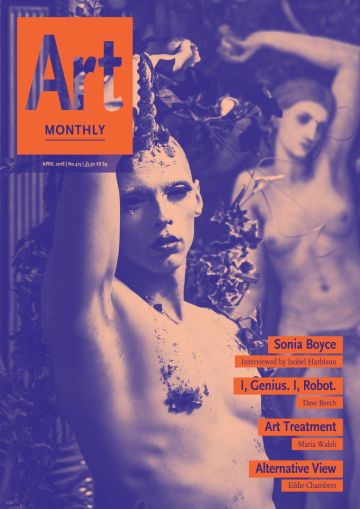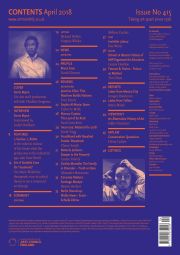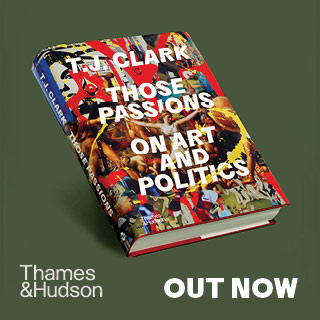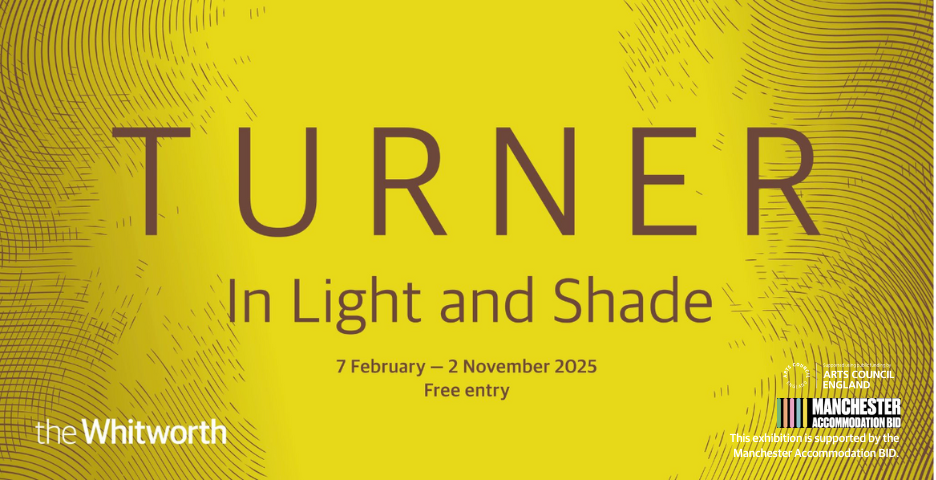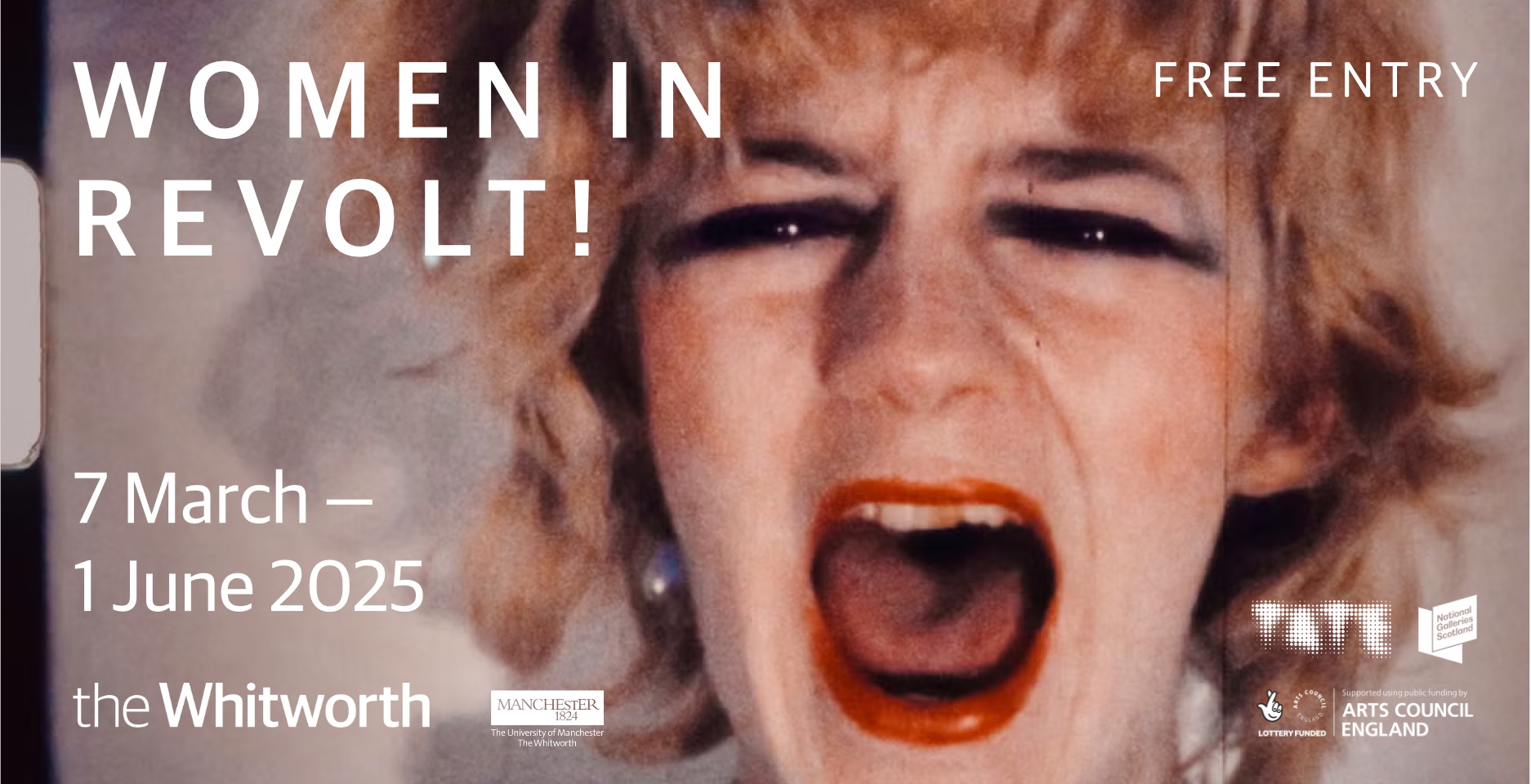Art Monthly 415
April 2018
Sonia Boyce
Interviewed by Isobel Harbison
I, Genius. I, Robot.
Dave Beech
Art Treatment
Maria Walsh
Alternative View
Eddie Chambers
Buy Now – select:
Want to read this right now?
Get instant access to the entire back catalogue via Exact Editions from only £8.99!
Contents
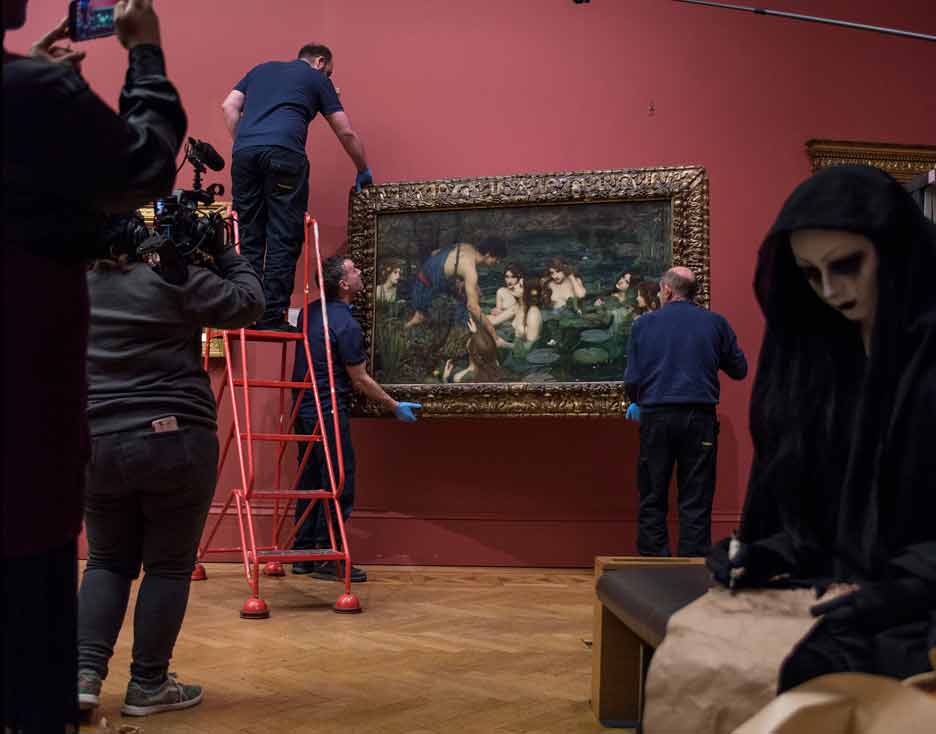
Sonia Boyce Six Acts 2018 production still
Interview
Me, Myself and Others
Sonia Boyce interviewed by Isobel Harbison
The British Afro-Caribbean artist discusses difference, censorship and the importance of working collaboratively.
And so we asked, 'OK, what's the difference between photography and painting?' What is the difference between those media such that, in one scenario, something is deemed so inappropriate that the state takes action, while, in another, it remains acceptable?
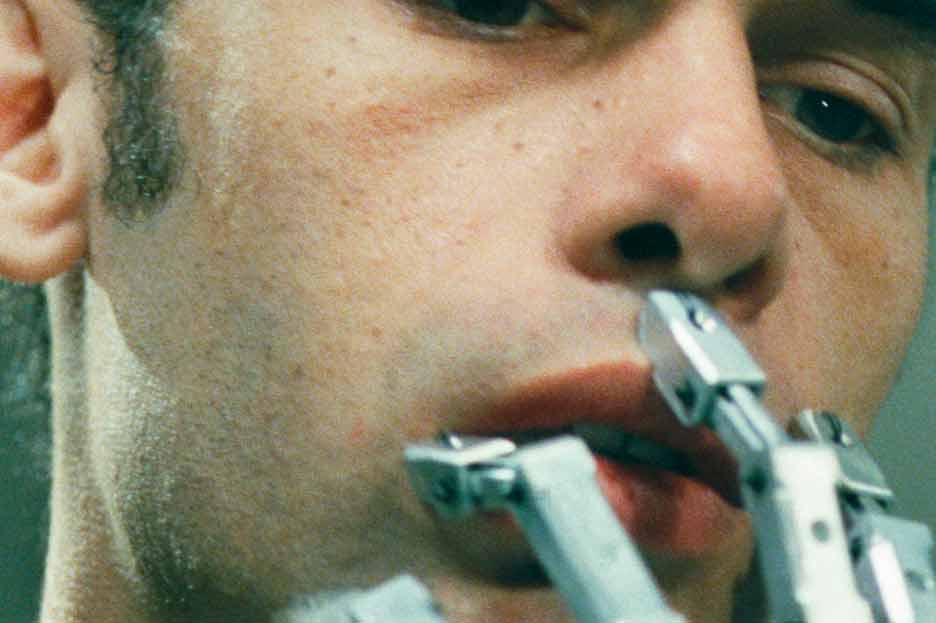
Daria Martin Soft Materials 2004
Feature
I, Genius. I, Robot.
Is the robot in visions of the future what the genius was to the industrial age, asks Dave Beech
The current left-accelerationist model of a future without work bears striking similarities to 19th-century ideas around the genius' emancipation from labour. But does current thinking devalue labour while simultaneously ushering in a new form of slavery?
In proposing that machines become slaves to a human race now universally occupying the place of the idle rich, Oscar Wilde thematises a dimension of Nick Srnicek and Alex Williams’s argument that has been repressed, namely the preservation of the aristocratic concept of labour which regards work as suitable only for slaves or their mechanised or robotic proxies.
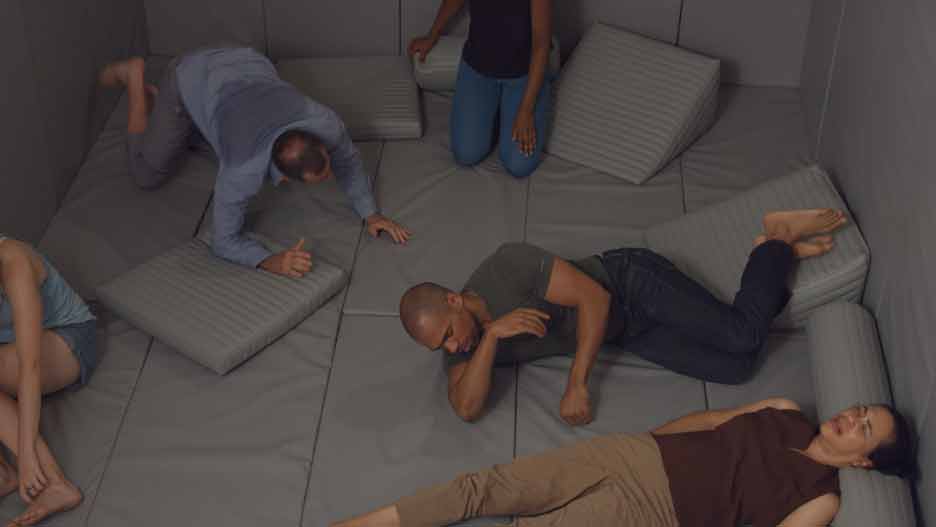
Liz Magic Laser Primal Speech 2016
Feature
Art: A Suitable Case for Treatment?
For Maria Walsh, the therapeutic turn in critical theory is not a version of art therapy
The so-called therapeutic turn, a current trend that nevertheless has roots in the 1970s, can be a powerful means of performing critique when understood through the work of artists like Leigh Ledare, Liz Magic Laser and Ilona Sagar.
Mainstream therapeutic discourse risks adapting to what sociologist Frank Furedi, writing in 2004, called the 'depoliticised language of managerialism'.
Comment
Editorial
In A While, Crocodile
A recent government report on the cost of museums could be seen as laying the groundwork for the abolition of state support for the arts. Given that the Tories are as committed as ever to privatisation of state responisibilities, and that Labour is championing nationalisation, might the arts soon find themselves in the centre of the political battleground?
In retrospect it can be seen that the arts haplessly contributed to their own fate.
Letters
Solitary Figure
Richard Hylton takes issue with Virginia While's interview with Rasheed Araeen, and Virginia Whiles replies.
Artnotes
Museum Limbo
The collapse of Carillion leaves outsourced British Museum employees in the lurch; the Southbank Centre pulls all future advertising from the Daily Mail; BAE withdraws its sponsorship of the Great Exhibition of the North after protests; controversial firm Wilson Security is dropped by Australia's National Gallery of Victoria; Nan Goldin's anti-Sackler protests continue to put pressure on public institutions; Tate artist in residence Liv Wynter quits in protest over comments by Tate's director, Maria Balshaw; plus the latest news on galleries, appointments, prizes and more.
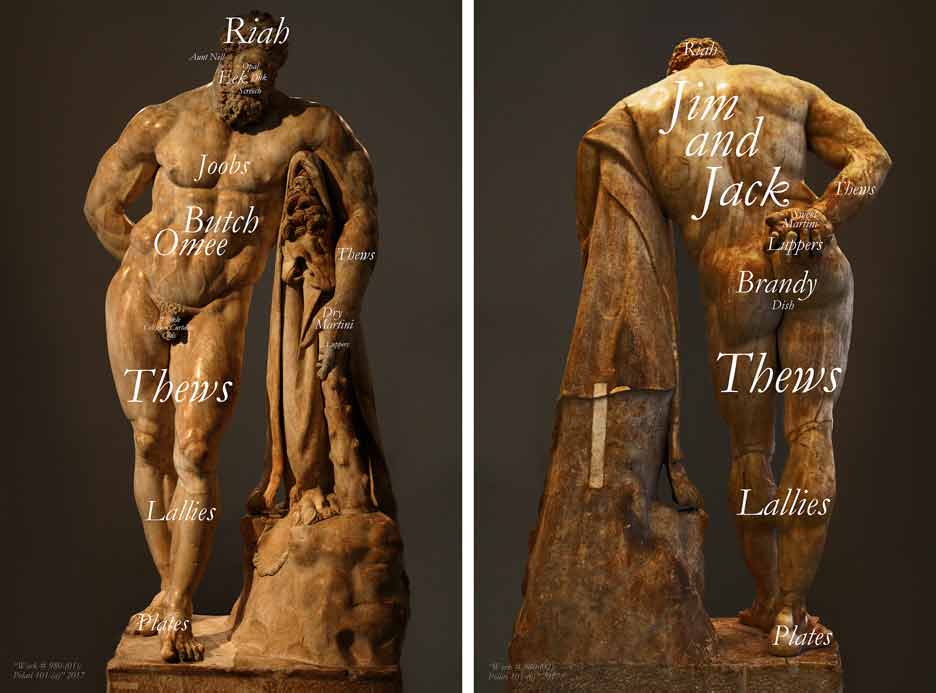
Bruce Eves Work #980: Polari (a & b) 2017
Profile
Bruce Eves
David Gleeson on the Canadian polymath who works with film, photography and performance as well as with archives in order to bring to the surface the latent readings in cultural artefacts.
Bruce Eve's output explores the shifting nature of time and perception, the mercurial relationships of image versus interpretation and memory versus reality.
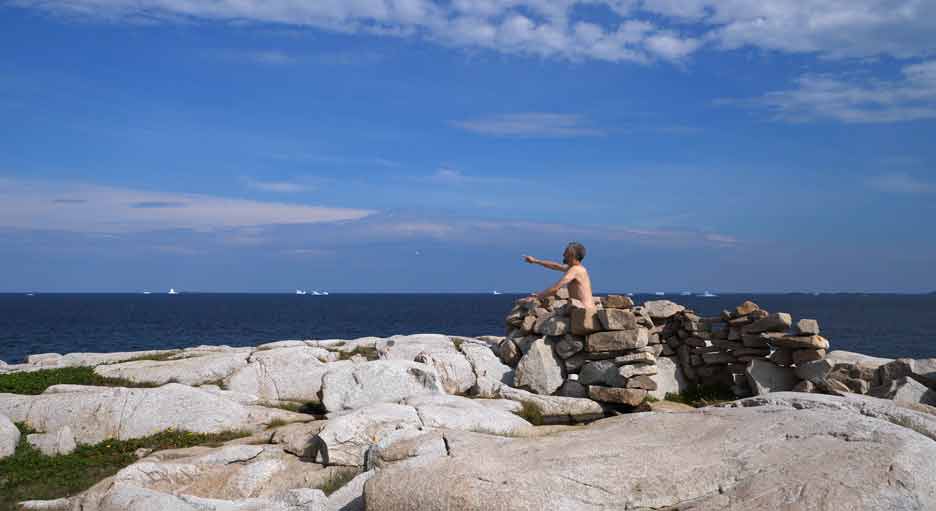
Marcus Coates The Last of its Kind 2017
Exhibitions
Jasmina Cibic: This Machine Builds Nations
Baltic, Gateshead
Tom Emery
Sophia Al-Maria: ilysm
Project Native Informant, London
Taylor Le Melle
Marcus Coates: The Last of its Kind
Workplace Gallery, London
Paul Carey-Kent
Iman Issa: Material for 2018
Spike Island, Bristol
David Trigg
Fourthland with Rosalind Fowler: Breadrock
PEER, London
Cherry Smyth
Melanie Jackson: Deeper in the Pyramid
Grand Union, Birmingham
Lauren Velvick
Cinthia Marcelle: The Family in Disorder – Truth or Dare
Modern Art Oxford
Alexander Massouras
Concrete Matters
Moderna Museet, Stockholm
Santiago Mostyn
Andrehn-Schiptjenko, Stockholm
Martin Herbert
Berlin Round-up
Walks News • Éclair • Schiefe Zähne
Melissa Canbaz
Reviews
Film
Invisible Labour
Dan Ward
The position of labour in the re/production of film and video has been a central dynamic in its history.
Reviews
Books
School: A Recent History of Self-Organised Art Education
Lauren Houlton
Sam Thorne's questions, while punctured by brief excursions into criticality (such as when he asks Olafur Eliasson whether by locating his education institution next to his studio space he was simply replicating the same hierarchical systems of exchange that he was hoping to subvert) are mostly neutral and practical.
Futures & Fictions
Fiction as Method
Tim Dixon
What to make of two books tackling the subject of fiction within contemporary art, politics and the humanities emerging from the same London college around the same time? Might these two collections signal the stirring of reinvigorated oppositional politics, interested in creating new propositions, rather than merely rejecting the status quo?
Reports
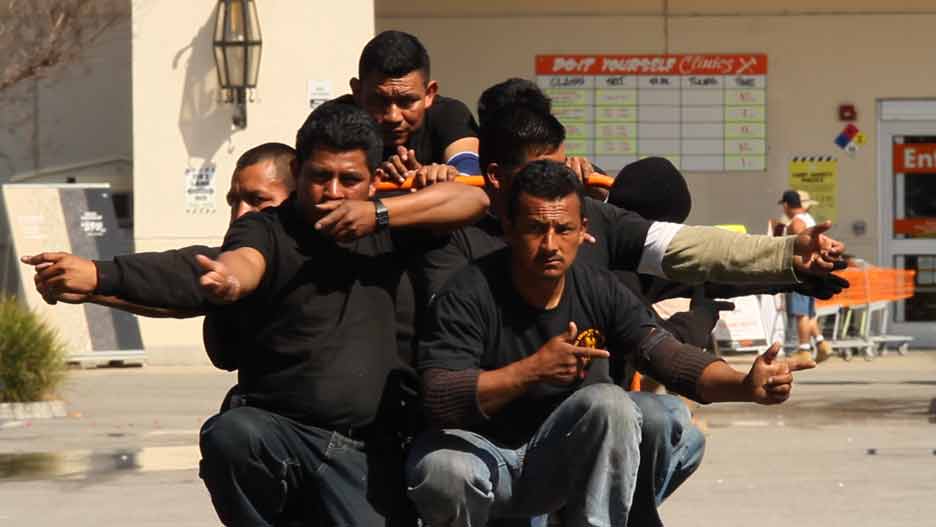
Yoshua Okón Octopus 2011
Letter from Mexico City
In Transit
Imogen Bakelmun
In the vibrant Mexico City art scene, artists and curators are responding to this tense, divided climate by mobilising the political energy in works that expose the ways in which politics is entangled, layered and performed within culture.
Reports
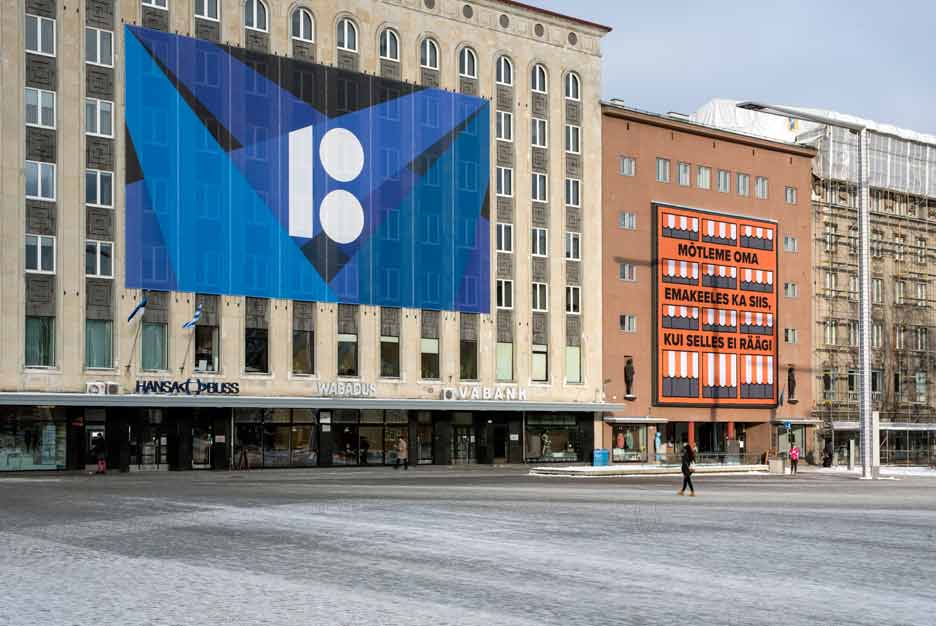
Lise Harlev You think in your own language 2018
Letter from Tallinn
Dis/Identification
Maria Walsh
A young Estonian gallery assistant impressed on me the importance of Kumu Art Museum's 'Estonian Art of the Soviet Era 1940-1991' display for her generation who, born in the 1990s, know little of this social history.
Viewpoint
Radio
An Alternative History of Art
Eddie Chambers
Rather than creating liberal-minded alternative histories, the art establishment and its mouthpieces would be better off reflecting on why it is that certain artists are routinely sidelined.
Artlaw
Copyright
Conservation Questions
Henry Lydiate
Curators working with conservators for the sole purpose of displaying cultural objects have developed two principal schools of thought: one, do not under any circumstances touch the work or, two, do as much as ethically possible to intervene for posterity.
Listings
Events
Calendar
The updated events and exhibitions calendar can be viewed online.
Exhibitions
Exhibition Listings
Art Monthly's exhibition listings can be viewed online.

